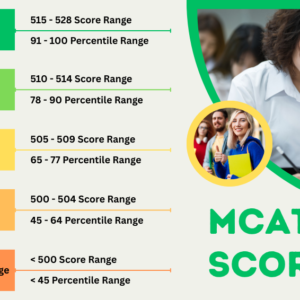As a graduate trainee or an employer, you will benefit from an internship or practicum. Practicum and internship are almost similar, but they are, for all purposes and intent, different. Read on to discover the main differences between the two terms.
After college or university, it is not always easy to land a job at once. There are many graduates out there, pouring into the market yearly to get work. Therefore, if you have nothing except your classroom knowledge as your qualification, you may find the competition too much for you.
This is because many of these new graduates have some experience on top of their paper credentials. So when push comes to shove, they get the first consideration. The little knowledge they acquired in the field between school learning becomes the trump card that puts them on the shortlist.
How did they acquire the experience? Well, they were interns or practicum in the relevant companies while being students.
Practicum and internship are almost similar, and, there are situations they are the same. But they are, for all purposes and intent, different.
The Similarities between Practicum and Internship
Both practicum and internship involve mostly graduate or post-graduate students who, to gain experience in their relevant skills, undertake field works where they can apply or demonstrate competence.
It can be said that both terms refer to the students transitioning from university or college into the workforce. They are being prepared for their future careers through on-site experience to gauge their real job readiness.
Through the practicum and internship process, the students manage to develop more practical knowledge.
Although the field works are primarily designed to help the students gain practical competency, the employers who take in the practicum and interns usually benefit because of the cheap labor from these trainees.
Originally, interns were trainee doctors posted to field works to gain more experience in handling the sick. The term is now used liberally on any student from any field seeking real-life exposure before joining the real life.
Part of the exposure can be in meeting other students from different schools, colleges, or universities. Through such interactions, the interns and practicum compare notes and build a network of like-minded scholars.
They also build networks with the on-site professionals they meet at these sites. Through such a connection, some interns eventually get employment after graduation.
The Difference between Practicum and Internship
Practicum internship difference lies not on the intent but scope of purposes.
While both the practicum and intern seek work-setting experience, a practicum mostly does it under supervision that requires him to mainly observe and record what the professionals are doing. This is especially true with the practicum nurses.
However, an intern has somewhat more room to work independently at the same work-setting site. An intern can be assigned one of the organization’s employees to work hand in hand with, while a more senior staff oversees a practicum.
For instance, a practicum can be instructed to work under a professional, who assigns him tasks to do. This limits the level of participation that a practicum can freely contribute.
The professional mentoring the practicum may have to keep visiting him now and then to monitor the work. An intern needs no such frequent monitoring, though a professional may occasionally pop in to assess his progress.
While an intern can work under a professor or other senior personnel, he is working freely, doing the same work the regular employees are doing. He can also be given more responsibilities or advanced tasks to tackle.
Both the practicum and an intern are not expected to earn from their support to the organizations they are posted. Nevertheless, in most cases, the interns get to own from the skills they provide. A practicum is not paid for any services rendered to the site.
However, an intern’s payment or lack of depends on an individual organization’s or company’s policies.
Another practicum and internship difference is that the former usually is short-term, lasting for a semester, while the latter can clock up to one year. The hours each should work per week can vary.
An intern can work for more hours per week compared to the practicum. This makes sense because the intern is paid and normally has advanced tasks.
Practicum and an internship also differ on the point of time they are relevant. An internship should take place towards the end of the studies. By then, the student has learned much and is supposed to implement these lessons.
However, practicum takes place early or in the middle of a student’s learning program. He has not yet acquired so much knowledge that he can be entrusted with complex tasks out in the field.
All he can do correctly at this stage is to observe and document the process going on. Since he is still learning, he is expected to ask questions to understand the concepts better.
In short, an intern goes to the field with the time-to-put-into-practice mindset while a practicum is expected to arrive in the same area with the I-want-to-see-how-they-do-it-in-real-life mindset.
What is evident here is that the debate is not about whether you should choose practicum or internship because you will get the opportunity to be one and then the other if you are patient enough.
It is not a battle of practicum vs. internship where you expect losers and winners.
The practicum and internship definition only show each is determined by time. It is time that gives an intern the upper over a practicum. Indeed, an intern can end up as an employee of the organization that absorbed him under internship. This is rare for the practicum.
Upon completing some university or college programs, the students must submit the report on their completed internship. The report usually summarizes the projects they undertook in the field, together with their roles, portfolio, etc.
This is used to evaluate their experience and readiness for the career. The point is that the internship program is more complicated. But despite how involving these programs are, students can create time for pastime activities, including betting.
Conclusion
It should be noted that what is expected of a practicum might differ from organization to organization or field to field.
It is crucial to read a practicum and internship handbook to understand how that particular organization or business interprets the interns and practicum roles. For businesses, a practicum is an internship and vice versa.






